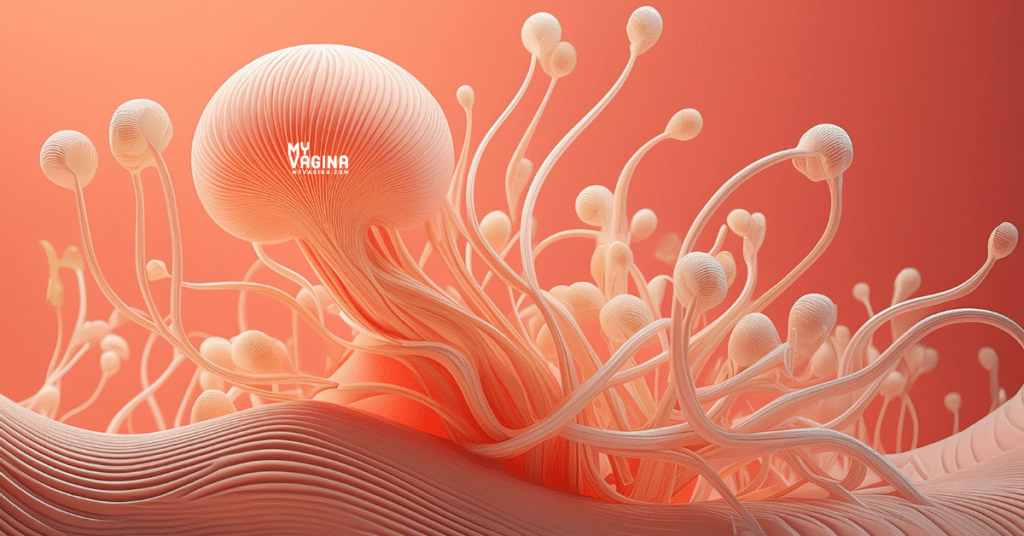Greetings!
I am an ovarian cancer patient. I have stents in my ureters due to the cancer and from the chemo. I have Stage 3 Chronic Kidney Disease.
My creatinine generally is 1.3-1.4.
I have a fungal vaginal infection but do not want to take Diflucan/Fluconazole. It’s hard on the liver.
Which remedy would you recommend? I will also run this by my nephrologist, but I imagine it will be fine to take even with some renal impairment.
Sincerely,
R
Age 58, USA
_______________
Hello there R,
I understand your concern regarding the use of strong antifungal medications, given your health conditions. Avoiding unnecessary systemic treatments that can tax your body further is sensible.
For a vaginal fungal infection, topical treatments such as antifungal creams or pessaries containing herbal antifungals could be an effective, practical option for you.
The active ingredients in specific antifungal herbal medicines are commonly used in cases of vaginal thrush (Candidiasis yeast infection). They can be found in preparations like Aunt Vadge’s Yeast/Thrush Herbal Pessary Blend.
Treatment recommendations:
- Use Aunt Vadge’s Yeast/Thrush Herbal Blend vaginally as directed (see QR code on label)
- Take Kolorex Oral Supplement orally for one jar as directed on the label
- If the vulva or anal area is affected, the Kolorex Wash and Kolorex Cream are also gentle and effective (and smell really good!)
- If you’re still not getting the results you’re after in 3-4 weeks, book with a My Vagina specialist practitioner – I recommend Simone Jeffries for your case
The herbs used in our antifungal yeast preparation are active against a range of fungi, and we use them often, with great effect. Let’s discuss some of the ingredients in more detail.
Gymnema sylvestre (gymnema)
Gymnemic acid, one of the active constituents of the gymnema plant, is known to inhibit the transformation of Candida albicans, a common vaginal yeast, from yeast to hyphae (morphogenesis)1,2.
This transition to hyphae is a known virulence factor of C. albicans and other fungi, whereby, under certain environmental conditions, the yeast cells transform to a filamentous state. It switches from a single-cell organism to one with legs and arms (filaments) that can invade tissue, behave differently, and become harder to treat.1
Gymnema doesn’t have any impact of the growth or viability of C. albicans, but it inhibits this change of form, which can help keep the yeast from spreading. In fact, gymenemic acid encourages the yeast to turn back into a less problematic form, the regular yeast cell.1
Gymnema also has antibacterial qualities, including being effective against some strains of Staphylococcus aureus and Escherichia coli2.
Ocimum sanctum (Holy basil, tulsi)
Researchers of holy basil revealed remarkable morphological changes in Candida albicans treated with special preparations from the plant. These changes showed severe cell damage beyond repair, which leads to cell death3,4. Holy basil also inhibits certain dermatological fungi3 and skin conditions.
As with gymnema, holy basil is also a potent antibacterial4.
Pseudowintera colorata (Horopito)
Horopito5 has known antimicrobial (antibacterial, antifungal) activities. Here at My Vagina, we tend to use horopito in several forms, first as part of our direct vaginal treatment, but secondly – and no less importantly – as an oral treatment6 to address digestive tract yeast and biofilms.
One of our favourite oral treatments, the Kolorex Oral Supplement, has been formulated to be very effective against yeasts, used by mouth6. The active constituents in horopito quickly and effectively destroy the cell membrane of fungi7,8.
Centella asiatica (gotu kola)
Gotu kola has strong antibacterial and antifungal properties9 while promoting healthy cell development, amongst other supportive actions9. We use gotu kola to promote healing. It’s an incredibly versatile herb, and we go through a lot of it in our clinic.
Berberis vulgaris (barberry)
Barberry is a potent antimicrobial10, containing high amounts of berberine9. We use this herb a lot here at My Vagina, as it is a strong contender for immense antimicrobial properties, including antifungal11.
Since there is much to consider with your kidney condition, discuss these alternatives with your nephrologist before proceeding. They will be able to provide tailored advice and ensure that the chosen treatment is safe for you.
Wishing you all the best in health and comfort,
Aunt Vadge
References
- 1.Chow EWL, Pang LM, Wang Y. From Jekyll to Hyde: The Yeast–Hyphal Transition of Candida albicans. Pathogens. Published online July 7, 2021:859. doi:10.3390/pathogens10070859
- 2.Ranjan A, Tripathi JS, Singh SK. Antibacterial Activity of Extract of Endophytic Fungi of Gymnema sylvestre. Proc Natl Acad Sci, India, Sect B Biol Sci. Published online December 27, 2014:477-483. doi:10.1007/s40011-014-0471-z
- 3.Balakumar S, Rajan S, Thirunalasundari T, Jeeva S. Antifungal activity of Ocimum sanctum Linn. (Lamiaceae) on clinically isolated dermatophytic fungi. Asian Pacific Journal of Tropical Medicine. Published online August 2011:654-657. doi:10.1016/s1995-7645(11)60166-1
- 4.Goyal P. In vitro Evaluation of Antibacterial Activity of Various Crude Leaf Extracts of Indian Sacred Plant, Ocimum sanctum L. BMRJ. Published online January 10, 2011:70-78. doi:10.9734/bmrj/2011/312
- 5.Purushotham N, Jones E, Monk J, Ridgway H. Fungal Communities in the Native New Zealand Medicinal Plant Pseudowintera colorata (Horopito) Are Determined by Plant Organ Type and Host Maturity with Key Members Promoting Plant Growth. Microorganisms. Published online December 13, 2021:2576. doi:10.3390/microorganisms9122576
- 6.METUGRIACHUK Y, KUROI O, PAVASUTHIPAISIT K, et al. In view of an optimal gut antifungal therapeutic strategy: an in vitro susceptibility and toxicity study testing a novel phyto‐compound. Chinese Journal of Digestive Diseases. Published online May 2005:98-103. doi:10.1111/j.1443-9573.2005.00199.x
- 7.Kubo I, Taniguchi M. Polygodial, an Antifungal Potentiator. J Nat Prod. Published online January 1988:22-29. doi:10.1021/np50055a002
- 8.Lee SH, Lee JR, Lunde CS, Kubo I. In Vitro Antifungal Susceptibilities of Candida albicans and Other Fungal Pathogens to Polygodial, a Sesquiterpene Dialdehyde. Planta med. Published online April 1999:204-208. doi:10.1055/s-1999-13981
- 9.El-Zahar KM, Al-Jamaan ME, Al-Mutairi FR, Al-Hudiab AM, Al-Einzi MS, Mohamed AAZ. Antioxidant, Antibacterial, and Antifungal Activities of the Ethanolic Extract Obtained from Berberis vulgaris Roots and Leaves. Molecules. Published online September 19, 2022:6114. doi:10.3390/molecules27186114
- 10.Mahmoudvand H, Ayatollahi Mousavi SA, Sepahvand A, et al. Antifungal, Antileishmanial, and Cytotoxicity Activities of Various Extracts of Berberis vulgaris (Berberidaceae) and Its Active Principle Berberine. ISRN Pharmacology. Published online March 10, 2014:1-6. doi:10.1155/2014/602436
- 11.Imenshahidi M, Hosseinzadeh H. Berberis Vulgaris and Berberine: An Update Review. Phytotherapy Research. Published online August 16, 2016:1745-1764. doi:10.1002/ptr.5693







